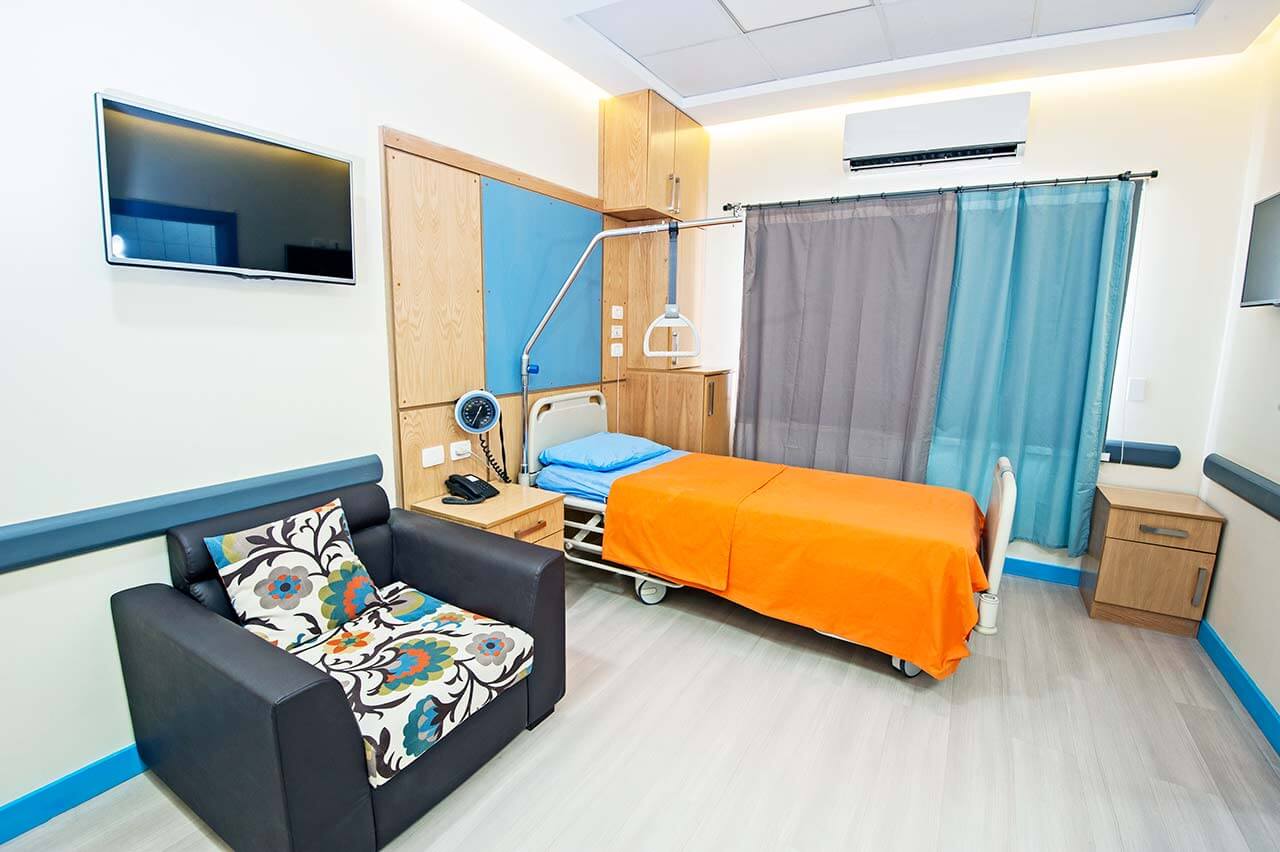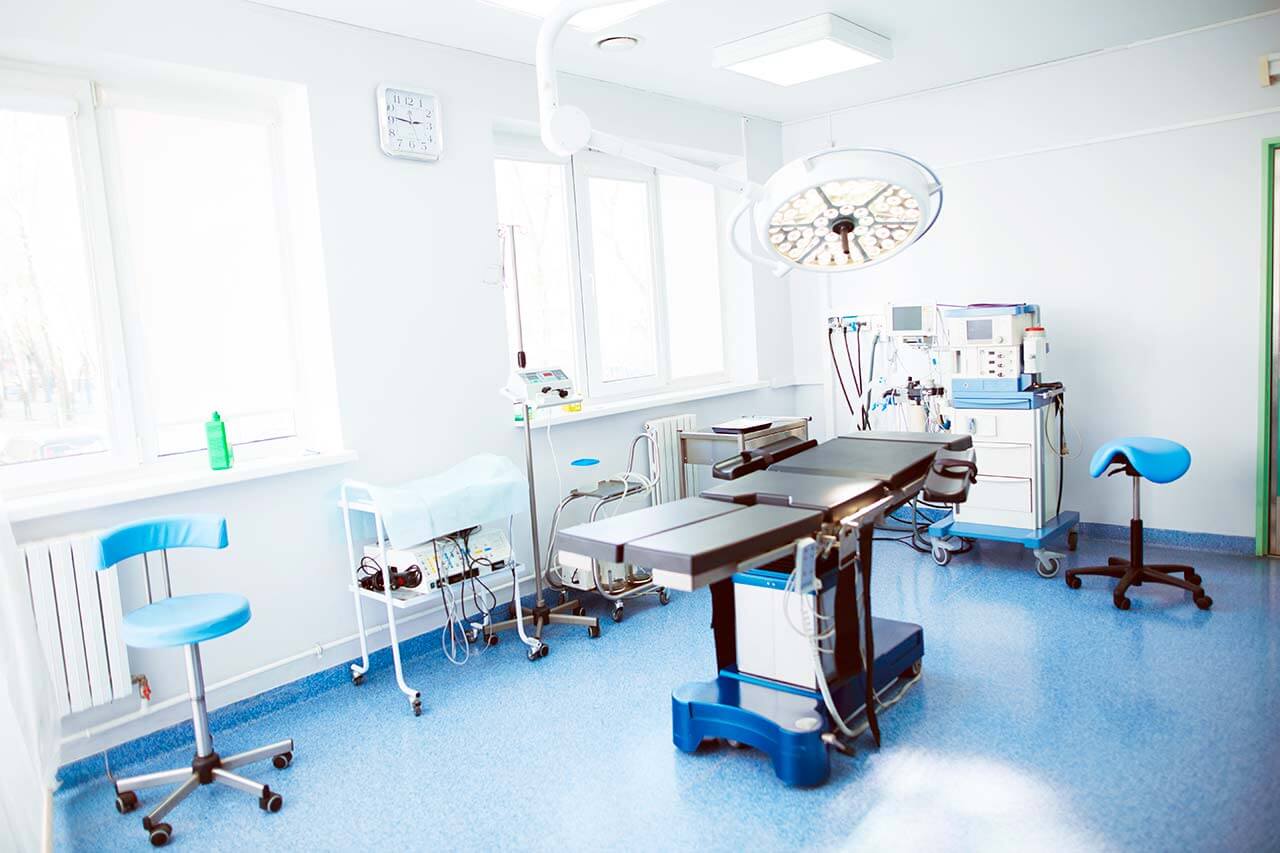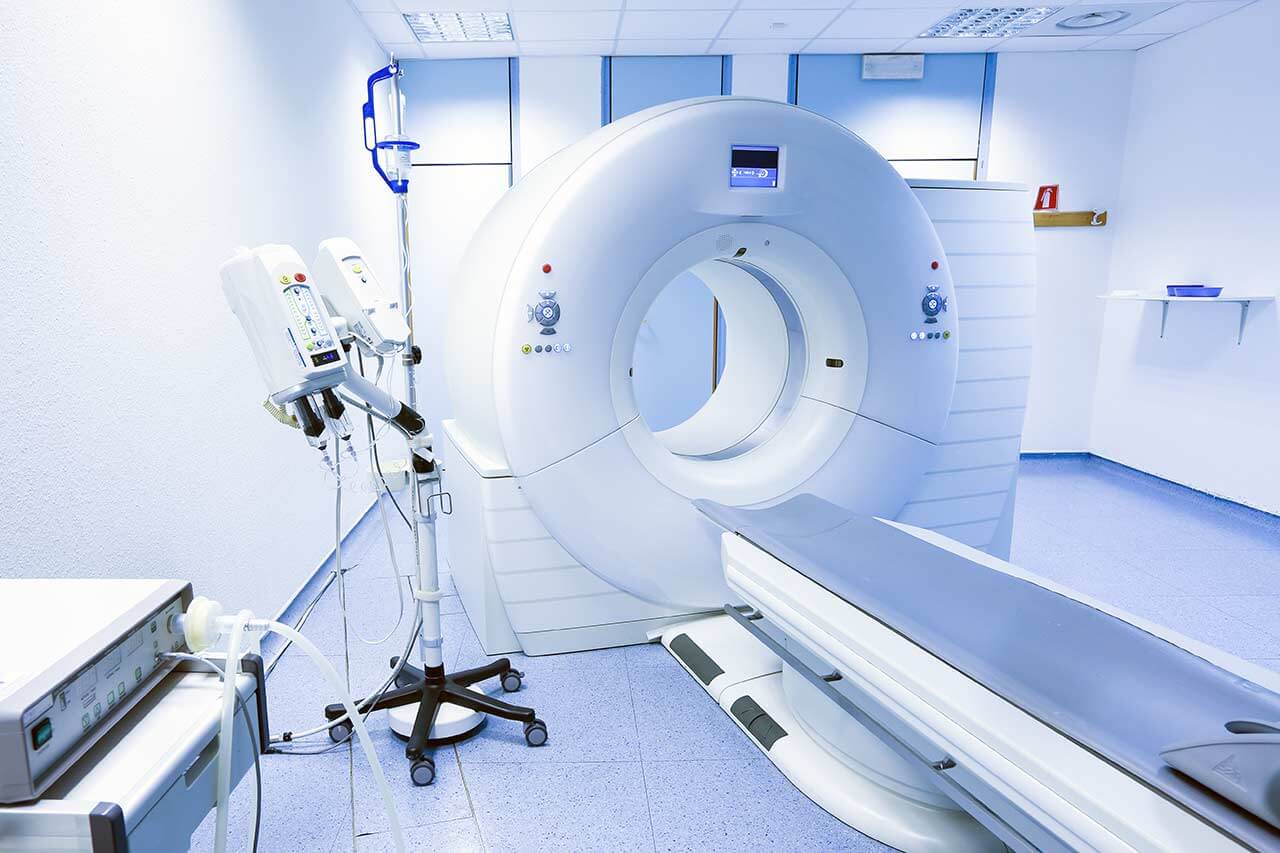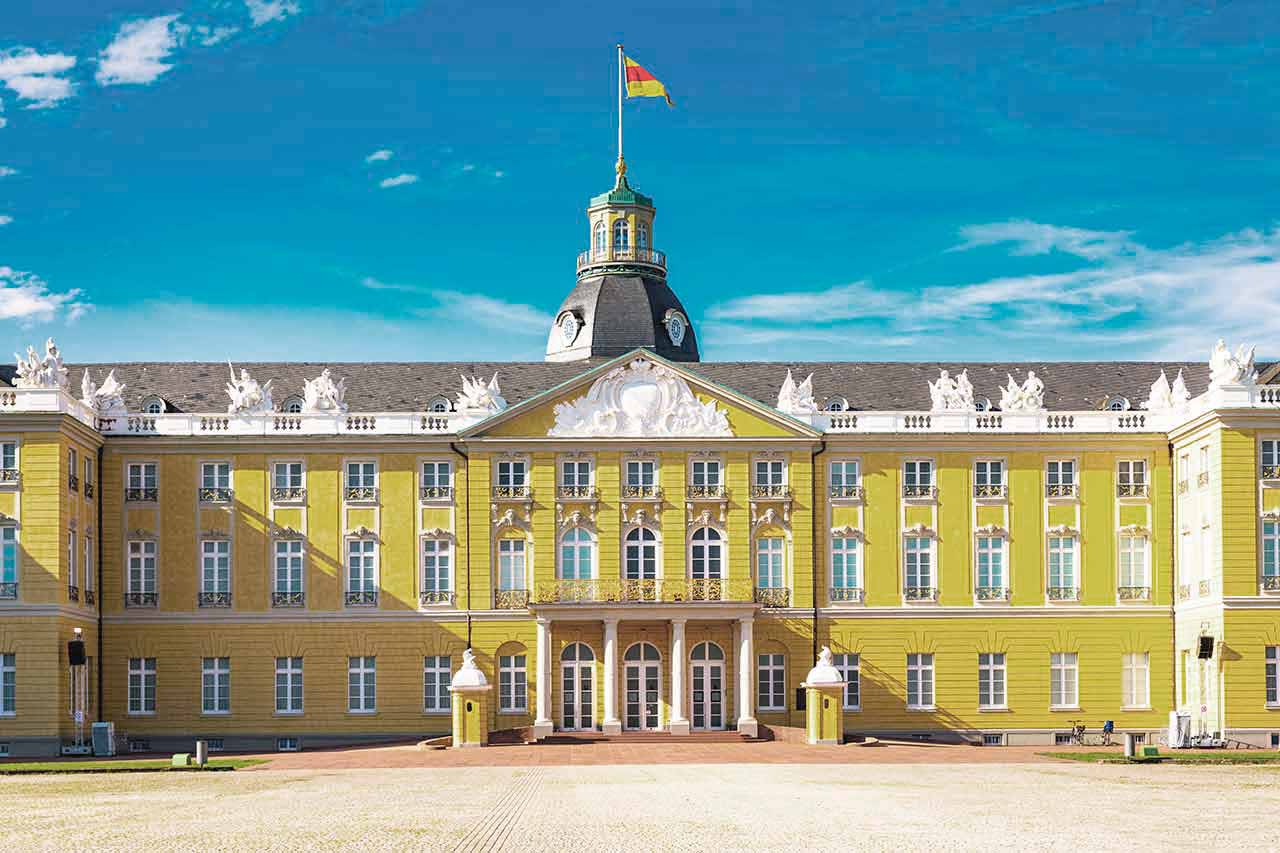
The program includes:
- Initial presentation in the clinic
- case history collection
- general clinical examination
- laboratory tests:
- complete blood count
- general urine analysis
- biochemical analysis of blood
- TSH-basal
- tumor markers
- indicators of inflammation
- indicators of blood coagulation
- abdominal ultrasound scan
- CT / MRI of chest and abdomen
- 1 course of chemotherapy
- consultations of related specialists
- symptomatic and specific treatment
- the cost of essential medicines and materials
- nursing services
- control examinations
- full hospital accommodation
- developing further treatment plan
How program is carried out
During the first visit, the doctor will conduct a clinical examination and go through the results of previous laboratory tests and instrumental examinations. After that, you will undergo an additional examination, including laboratory assessment of liver and kidney function, ultrasound scan. Based on the received results, the doctor will elaborate the chemotherapy regimen. If necessary, related medical specialists will be involved in the elaboration of a treatment regimen (tumor board).
Chemotherapy is carried out as the inpatient procedure, with mandatory admission to the hospital. After the placement of a venous catheter, you will stay in a comfortable ward. An infusion system will be connected to the catheter, through which the required drug or a drug combination will be administered. All drugs are administered by intravenous drip, slowly, so the total duration of the infusion can be up to several hours. All this time, doctors and nurses will monitor your health condition closely.
After the course of chemotherapy, you will stay under medical supervision in the ward for a few more hours. After the completion of the chemotherapy course and control examinations you will receive the medical report with detailed recommendations regarding further treatment. In the future, you will be able to have a distant consultation with your attending physician and schedule the next course of chemotherapy, if necessary.
Required documents
- Medical records
- MRI/CT scan (not older than 3 months)
- Biopsy results (if available)
Service
You may also book:
 BookingHealth Price from:
BookingHealth Price from:
About the department
The Department of Oncology, Hematology, Bone Marrow Transplantation and Infectology at the Municipal Hospital Karlsruhe provides high-quality diagnostics and treatment in the areas of its specialization. The department provides the full range of medical services to the patients suffering from blood diseases, oncological diseases of the internal organs and infectious pathologies. Of particular interest is the treatment of leukemia, lymphomas, drug therapy of solid malignant tumors, as well as palliative care to improve the quality of life of patients with advanced stages of cancer. The department's team of doctors also successfully performs autologous and allogeneic bone marrow transplant procedures. In total, the department has 75 beds for the hospitalization of its patients. The treatment is provided in rooms with state-of-the-art equipment, thanks to which chemotherapy and other infusion procedures are carried out in the most comfortable conditions for the patient. All therapeutic interventions meet the standardized protocols of the professional societies. The department is headed by Prof. Dr. med. Martin Bentz.
The department includes a unit specializing in high-dose chemotherapy with the subsequent autologous and allogeneic bone marrow transplantation, an intensive care unit, an ultrasound diagnostic room, a large hematology laboratory, and a palliative care unit. In December 2014, a Day Therapy Center (TagesTherapieZentrum) was opened to admit outpatients. This facility offers excellent conditions for chemotherapy and infusion therapy.
The department is part of the Cancer Center Karlsruhe, which brings together highly qualified specialists from various medical disciplines to provide optimal care for cancer patients. This center undergoes regular independent quality inspections and is certified by the German Society of Hematology and Medical Oncology. The center holds weekly interdisciplinary tumor boards, during which the doctors discuss each clinical case in detail and determine the most effective treatment tactics. The Cancer Center Karlsruhe participates in national and international clinical trials of innovative treatment methods, which allows them to be quickly introduced into the department's clinical practice.
To treat solid tumors, the department's doctors use conservative treatment methods, surgical interventions (they are performed by specialized surgeons), various types of radiation therapy, as well as innovative interventional procedures. Each treatment regimen is thought out down to the smallest detail and is aimed at the complete cure of the patient or the achievement of a long-term remission, and if possible, also includes sparing therapeutic procedures. Patients receive competent psychological care. They also have the opportunity to share their experiences and fears with other patients within self-help groups, which contributes to a positive attitude towards treatment. The patients with advanced stages of cancer receive palliative care, which allows them to have a decent quality of life, as well as get rid of a severe pain syndrome caused by cancer progression. The palliative care unit has 12 beds. The doctors of this unit also hold consultations and provide outpatient services in palliative care.
In the field of hematology, the most demanded treatment method is high-dose chemotherapy, which is often combined with an autologous or allogeneic bone marrow transplantation. Such treatment is usually provided to patients with leukemias, lymphomas and multiple myeloma. Since 1996, the department's specialists have performed more than 550 autologous bone marrow transplant procedures, and in 2009 they also began to perform allogeneic bone marrow transplantation – about 140 procedures of this kind have been performed over the entire period of the department's clinical practice. The doctors of the healthcare facility specializing in stem cell transplantation are rightfully proud of the results of their work. The department has the European certificate JACIE (Joint Accreditation Committee of the ISCT and the EBMT), which is considered the most prestigious international recognition for Bone Marrow Transplantation Centers.
In the field of infectology, the department offers the diagnostics and treatment of all infectious diseases, including tropical infections. The department has unique achievements in the treatment of patients with HIV and AIDS. The doctors of this medical speciality also successfully deal with the treatment of tuberculosis, meningitis and hepatitis. The rooms for patients with infectious diseases are equipped with special ventilation systems, which ensures high safety standards for the treatment of patients with contagious diseases.
The department's main clinical activities include:
- Oncology
- Diagnostics and treatment of solid malignant tumors: bowel, stomach, kidney, lung cancers, etc.
- Conservative treatment
- Interventional procedures and surgical interventions (in cooperation with the specialized doctors)
- Radiation therapy (in collaboration with radiation therapists)
- Palliative care in the advanced stages of oncopathology
- Diagnostics and treatment of solid malignant tumors: bowel, stomach, kidney, lung cancers, etc.
- Hematology
- Diagnostics and treatment of blood diseases: leukemias, lymphomas and multiple myeloma
- High-dose chemotherapy with an autologous or allogeneic bone marrow transplantation
- Diagnostics and treatment of blood diseases: leukemias, lymphomas and multiple myeloma
- Infectology
- Diagnostics and treatment of infectious diseases: tuberculosis, meningitis, hepatitis, HIV and AIDS, tropical infections
- Other diagnostic and therapeutic options
Photo of the doctor: (c) Städtische Klinikum Karlsruhe
About hospital
The Municipal Hospital Karlsruhe is a modern maximum care medical facility, which combines a long tradition and the advanced achievements of modern medicine. The hospital operates on the basis of the University of Freiburg, so scientific innovations in the field of diagnostics and treatment are continuously introduced into practice here. The hospital presents almost all areas of modern medicine, including many medical services for young patients.
A highly qualified and experienced team of more than 4,500 employees provides impeccable medical care. The medical facility has 1,571 beds for the hospitalization of its patients. The hospital admits more than 63,000 inpatients and about 186,000 outpatients annually. A large number of patients wishing to receive medical care in the hospital speak for themselves and are a confirmation of the exceptional service, as well as the effectiveness of the treatment provided.
The quality management system of the hospital's medical care is certified in accordance with the DIN EN ISO 9001 standards. Since 2016, the hospital has implemented a regular quality control in compliance with the strict standards of the Initiative Quality Medicine (IQM). In addition, almost all departments of the hospital have numerous certificates in their areas of specialization, including certificates from the German Cancer Society (DKG), the German Society for General and Visceral Surgery (DGAV), the German Cardiac Society (DGK), the German Diabetes Society (DDG), the German Society of Nephrology (DGN), the German Trauma Society (DGU), etc.
The main value of the hospital's staff is the health and satisfaction of their patients, so a respect and a humane attitude towards each patient remain priorities. The doctors and nursing staff support each patient in every possible way on their path to recovery. The specialists also strive to perform the most sparing, but at the same time the most effective and safe treatment.
Photo: (с) depositphotos
Accommodation in hospital
Patients rooms
The patients of the Municipal Hospital Karlsruhe live in cozy patient rooms with everything necessary for a comfortable stay. Standard patient room furnishing includes an automatically adjustable bed, a bedside table, a TV, and a telephone. The patient rooms have Wi-Fi. Each patient room also has an ensuite bathroom with a shower and a toilet.
The patient rooms in the pediatric departments are specially designed for children, so that young patients feel at home. Children can live in their patient room with one of their parents. There are also special playrooms designed for children.
Meals and Menus
The patients of the hospital are offered tasty and varied three meals a day: breakfast, lunch and dinner. The menu also features dietary meals. The kitchen staff will gladly accept all the individual wishes of patients.
The hospital also has a cozy cafe where one can have a tasty snack, drink tea, coffee and soft drinks.
Further details
Standard rooms include:
Religion
The hospital has two chapels that regularly host Protestant, Catholic, and Ecumenical worship services. A patient can watch the broadcast of the worship on TV channels in his own room, if desired.
Accompanying person
Your accompanying person may stay with you in your patient room or at the hotel of your choice during the inpatient program.
Hotel
You may stay at the hotel of your choice during the outpatient program. Our managers will support you for selecting the best option.





